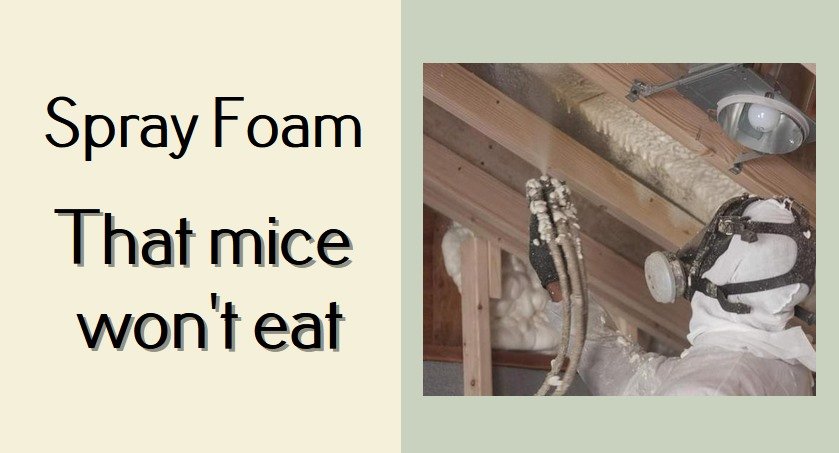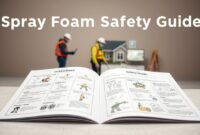Are you wondering about spray foam that mice won’t eat or any sealant that has the ability to prevent them from entering your building? If that is the case, you should stick with this article because it will go over it.
Do Mice Eat Spray Foam?
Mice may be damaging outside of a polluted area. Wires, stiff polyurethane foam, or even fiberglass batts are no match for them. Worse, the existence of mice in every portion of the building can be a difficulty when it comes time to sell.
When it comes to mice, prevention is everything. It is far simpler to prevent them from reaching the house than to persuade them to exit. Thinking about spray foam that mice won’t eat? Well, before answering that, just so you know, spray foam fulfills the purpose of protection by adequately insulating the house.

Spray foam is a preventative measure. It will be ineffective if mice are already present. Whilst completely insulating the house from bottom to top may be prohibitively expensive, insulating portions such as the loft, garage, or sections of the basement can have a significant impact.
Do mice chew through spray foam? No, mice are often not lured towards spray foam since it does not reflect food.
That is not something mice will gnaw onto and consume, in contrast to other kinds of more readily accessible insulation.
The truth is, spray foam is an insulating product. However, since it efficiently closes any room in a house or business facility, one of the few advantages is that it keeps mice and vermin away.
The majority of the advantages for individuals who opt to apply insulating spray foam come from increased house insulation, better moisture conservation, and greater coziness. The extra benefit, obviously, is a sealed compartment that prevents mice as well as vermin from entering.
Overall, insulating spray foam is an approach that is better done by an expert. This ensures the optimum setup and long-term results.
Best Foam Sealant For Mice
Including spray foam that mice won’t eat, a number of materials can prevent mice invasion, like cement, woven wire mesh, spray foam, and others. The total area to be coated is a decisive factor in picking the sort of material to employ. Below are some recommendations for the top three mouse proofing solutions.
- Woven Wire Mesh Is A Good Mice Repellent Material
Installing wire mesh panels at all potential access points for rats and mice is among the most efficient methods of keeping them outside of your house. That mesh is typically constructed of metal and may be tailored to combat a range of threats.
While wire mesh panels are particularly successful at deterring pests, establishing them takes a thorough understanding of almost all of the home’s access spots.
- Hemp Is Useful to Keep Rats and Mice Away
Hemp is an organic, environmentally beneficial substance that has exceptional insulating characteristics. Because it is moisture resistant, less mold is expected to grow in your house.
Hemp wool is an organic mouse repellent, making it a great insulating substance for keeping rats and mice at a distance. Whenever, regardless of your best attempts, mice make their way toward your house, hire a trained exterminator right away.
- Mouse-Proofing Silicone Sealant Keeps Mice Out
There are several advantages to using silicone sealant. That is safe and non-toxic for the occupants of the building. Also, because it is tough to gnaw through, it has the ability to keep rats at a distance.
Based on where your home’s access points are, mouse-proofing silicone sealant could be the ideal solution. This kind of sealant is highly recommended for usage on metal or glass surfaces.
You already know if spray foam that mice won’t eat is really true. If you want the ideal spray foam set up to keep away those mice, you can contact the professionals to get the best result.


